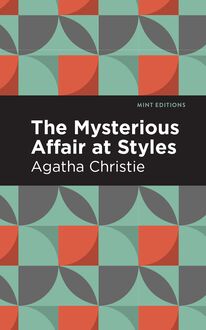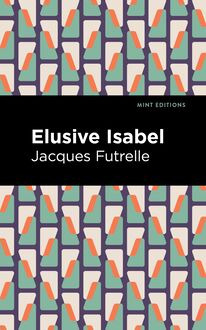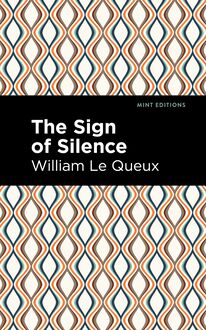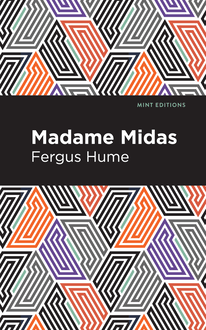-
 Univers
Univers
-
 Ebooks
Ebooks
-
 Livres audio
Livres audio
-
 Presse
Presse
-
 Podcasts
Podcasts
-
 BD
BD
-
 Documents
Documents
-
- Cours
- Révisions
- Ressources pédagogiques
- Sciences de l’éducation
- Manuels scolaires
- Langues
- Travaux de classe
- Annales de BEP
- Etudes supérieures
- Maternelle et primaire
- Fiches de lecture
- Orientation scolaire
- Méthodologie
- Corrigés de devoir
- Annales d’examens et concours
- Annales du bac
- Annales du brevet
- Rapports de stage
La lecture à portée de main
Vous pourrez modifier la taille du texte de cet ouvrage
Découvre YouScribe en t'inscrivant gratuitement
Je m'inscrisDécouvre YouScribe en t'inscrivant gratuitement
Je m'inscrisEn savoir plus
Vous pourrez modifier la taille du texte de cet ouvrage
En savoir plus

Description
A young couple falls on hard times when the man is accused of murdering his cousin after he makes a claim on their uncle’s fortune. Together, they must uncover the truth to save their relationship and repair his name.
Louise Harris is a bright and beautiful young woman. She’s being courted by Luke de Mountford, the purported heir to his uncle’s fortune. While the couple plans to marry, their future is threated by the arrival of Philip de Mountford, Luke’s cousin. He is considered a viable successor to the Mountford family estate. When he is found stabbed, Luke is viewed as a prime suspect due to his relation and clear motive. Despite the situation, Louise believes he’s innocent and plans to support him through the trial.
The Heart of a Woman isn’t a whimsical romance. It tests the limitations of love and its heroine’s will. It’s a story of resilience and faith in the midst of the most heartbreaking circumstance.
With an eye-catching new cover, and professionally typeset manuscript, this edition of The Heart of a Woman is both modern and readable.
Sujets
Informations
| Publié par | Mint Editions |
| Date de parution | 02 mars 2021 |
| Nombre de lectures | 0 |
| EAN13 | 9781513277226 |
| Langue | English |
| Poids de l'ouvrage | 4 Mo |
Informations légales : prix de location à la page 0,0500€. Cette information est donnée uniquement à titre indicatif conformément à la législation en vigueur.
Extrait
The Heart of a Woman
Baroness Emmuska Orczy
The Heart of a Woman was first published in 1911.
This edition published by Mint Editions 2021.
ISBN 9781513272221 | E-ISBN 9781513277226
Published by Mint Editions ®
minteditionbooks.com
Publishing Director: Jennifer Newens
Design & Production: Rachel Lopez Metzger
Project Manager: Micaela Clark
Typesetting: Westchester Publishing Services
C ONTENTS I. W HICH T ELLS OF A V ERY C OMMONPLACE I NCIDENT II. O NCE M ORE THE O BVIOUS III. A ND N OW A LMOST L IKE A D REAM IV. N OTHING R EALLY T ANGIBLE V. J UST AN O BVIOUS D UTY VI. J UST A D ISAGREEABLE O LD M AN VII. T HE P ART P LAYED BY A F IVE -P OUND N OTE VIII. A ND T HUS THE S HADOW D ESCENDED IX. W HICH T ELLS OF THE I NEVITABLE R ESULT X. L IFE M UST G O ON J UST THE S AME XI. A ND T HERE A RE S OCIAL D UTIES TO P ERFORM XII. S HALL A M AN E SCAPE H IS F ATE ? XIII. T HEY H AVE N O H EART XIV. T HE T ALE H AD TO B E T OLD XV. A ND M ANY M UST B E Q UESTIONED XVI. A ND THE P UPPETS D ANCED XVII. A ND W HAT OF THE S ECRET ? XVIII. I T W OULD N OT D O , Y OU K NOW XIX. N OT A LL A BOUT I T XX. A ND T HAT ’ S THE T RUTH XXI. H AVE A NOTHER C IGAR XXII. T HEN THE M IRACLE W AS W ROUGHT XXIII. W HY A LL T HIS M YSTERY ? XXIV. A H ERD OF C ACKLING G EESE XXV. T HE F OG W AS D ENSE , I C OULDN ’ T R IGHTLY S EE XXVI. T HE N EXT W ITNESS P LEASE XXVII. A ND P EOPLE W ENT O UT TO L UNCHEON XXVIII. W HICH T ELLS OF AN U NEXPECTED T URN OF E VENTS XXIX. T HE W ORLD I S S O L ARGE XXX. A ND T HEN E VERY O NE W ENT H OME XXXI. A ND T HERE A RE P EOPLE W HO D O N OT C ARE XXXII. A M AN M UST A CT A S H E T HINKS B EST XXXIII. I F Y OU W OULD O NLY L ET Y OURSELF G O XXXIV. W HICH S PEAKS O NLY OF F AREWELLS XXXV. W HICH T ELLS OF P ICTURES IN THE F IRE XXXVI. P EOPLE D ON ’ T D O T HAT S ORT OF T HING XXXVII. I T I S O NE H UMAN L IFE A GAINST THE O THER XXXVIII. T HE H AND OF D EATH W AS ON H IM T OO XXXIX. A M ERE W OMAN F IGHTING FOR THE T HING S HE L OVED XL. A ND T HUS H ER H OUR H AD C OME XLI. W HICH T ELLS OF THE C ONTENTS OF THE N OTE B OOK XLII. W HICH T ELLS O NCE M ORE OF C OMMONPLACE I NCIDENTS
I
W HICH T ELLS OF A V ERY C OMMONPLACE I NCIDENT
N o! No! she was not going to gush!—Not even though there was nothing in the room at this moment to stand up afterward before her as dumb witness to a moment’s possible weakness. Less than nothing in fact: space might have spoken and recalled that moment… infinite nothingness might at some future time have brought back the memory of it… but these dumb, impassive objects! … the fountain pen between her fingers! The dull, uninteresting hotel furniture covered in red velvet—an uninviting red that repelled dreaminess and peace! The ormolu clock which had ceased long ago to mark the passage of time, wearied—as it no doubt was, poor thing—by the monotonous burden of a bronze Psyche gazing on her shiny brown charms, in an utterly blank and unreflective bronze mirror, while obviously bemoaning the fracture of one of her smooth bronze thighs! Indeed Louisa might well have given way to that overmastering feeling of excitement before all these things. They would neither see nor hear. They would never deride, for they could never remember.
But a wood fire crackled on the small hearth… and… and those citron-coloured carnations were favourite flowers of his… and his picture did stand on the top of that ugly little Louis Philippe bureau… No! No! it would never do to gush, for these things would see… and, though they might not remember, they would remind.
And Louisa counted herself one of the strong ones of this earth. Just think of her name. Have you ever known a Louisa who gushed? who called herself the happiest woman on earth? who thought of a man—just an ordinary man, mind you—as the best, the handsomest, the truest, the most perfect hero of romance that ever threw a radiance over the entire prosy world of the twentieth century?
Louisas, believe me, do no such things. The Mays and the Floras, the Lady Barbaras and Lady Edithas, look beatific and charming when, clasping their lily-white hands together and raising violet eyes to the patterned ceiling paper above them, they exclaim: “Oh, my hero and my king!”
But Louisas would only look ridiculous if they behaved like that… Louisa Harris, too! … Louisa, the eldest of three sisters, the daughter of a wealthy English gentleman with a fine estate in Kent, an assured position, no troubles, no cares, nothing in her life to make it sad, or sordid or interesting… Louisa Harris and romance! … Why, she was not even pretty. She had neither violet eyes nor hair of ruddy gold. The latter was brown and the former were gray… How could romance come in the way of gray eyes, and of a girl named Louisa?
Can you conceive, for instance, one of those adorable detrimentals of low degree and empty pocket who have a way of arousing love in the hearts of the beautiful daughters of irascible millionaires, can you conceive such an interesting personage, I say, falling in love with Louisa Harris?
I confess that I cannot. To begin with, dear, kind Squire Harris was not altogether a millionaire, and not at all irascible, and penniless owners of romantic personalities were not on his visiting list.
Therefore Louisa, living a prosy life of luxury, got up every morning, ate a copious breakfast, walked out with the dogs, hunted in the autumn, skated in the winter, did the London season, and played tennis in the summer, just as hundreds and hundreds of other well-born, well-bred English girls of average means, average positions, average education, hunt, dance, and play tennis throughout the length and breadth of this country.
There was no room for romance in such a life, no time for it… The life itself was so full already—so full of the humdrum of daily rounds, of common tasks, that the heart which beat with such ordinary regularity in the seemingly ordinary breast of a very ordinary girl did so all unconscious of the intense pathos which underlay this very ordinary existence.
Vaguely Louisa knew that somewhere, beyond even the land of dreams, there lay, all unknown, all mysterious, a glorious world of romance: a universe peopled by girlish imaginings, and the sensitive, creating thoughts of poets, by the galloping phantasies of super-excited brains, and the vague longings of ambitious souls: a universe wherein dwelt alike the memories of those who have loved and the hopes of those who suffer. But when she thought of it all, she did so as one who from the arid plain gazes on the cool streams and golden minarets which the fairy Fata Morgana conjures on the horizon far away. She looked on it as all unreal and altogether beyond her ken. She shut her eyes to the beautiful mirage, her heart against its childish yearnings.
Such things did not exist. They were not for her—Louisa Harris. The little kitchenmaid at the court who, on Sunday evenings, went off giggling, her chubby face glowing with pride and the result of recent ablutions, on the arm of Jim the third gardener, knew more about that world of romance than well-bred, well-born young ladies ever dreamed of in their commonplace philosophy.
And Louisa Harris had always shut down the book which spoke of such impossible things, and counted herself one of the strong ones of the earth.
Therefore now, with Luke’s letter in her hand, in which he tells her in a very few words that he loves her beyond anything on earth, and that he only waits the day when he can call her his own, his very own dearly loved wife, why should Louisa—prosy, healthy-minded, healthy-bodied Louisa—suddenly imagine that the whole world is transfigured?—that the hotel room is a kind of ante-chamber to heaven?—that the red velvet, uncompromising chairs are clouds of a roseate hue and that the bronze Psyche with the broken thigh is the elusive fairy who, with Morgana-like wand, hath conjured up this mirage of glorious visions which mayhap would vanish again before long?
She went up to the window and rested her forehead against the cool pane. She might be ever so strong, she could not help her forehead feeling hot and her eyes being full of tears—tears that did not hurt as they fell.
Outside the weather was indeed prosy and commonplace. Rain was coming down in torrents and beating against the newspaper kiosk over the way, on the roofs of tramways and taxi-autos, making the electric light peep dimly through the veil of wet, drowning, by its incessant patter, to which the gusts of a November gale made fitful if loud accompaniment, the shouts of the cochers on their boxes, the rattle of wheels on the stone pavement, even at times the shrill whistle for cabs emanating from the porch of the brilliantly lighted Palace Hotel.
It was close on half-past six by the clock of the Gare du Nord opposite. The express from Ostend had just come in—very late of course, owing to the gale which had delayed the mail boat. Louisa, straining her eyes, watched the excited crowd pouring out of the station in the wake of porters and of piles of luggage, jabbering, shouting, and fussing like an army of irresponsible pigmies: men in blouses, and men in immaculate bowler hats, women wrapped in furs, clinging to gigantic headgear that threatened to leave the safe refuge of an elaborate coiffure or of well fixed gargantuan hatpins, midinettes in fashionable skirts and high-heeled shoes, country women in wool shawls that flapped round their bulky forms like the wings of an overfed bat, all hurrying and jostling one another in a mad endeavour to avoid the onrush of the innumerable taxi-autos which in uncountable numbers wound in and out of the slower moving traffic like the erratic thread of some living, tangled skein.
Just the every-day prosy life of a small but ambitious capital struggling in the midst of an almost overpowering sense of responsibility toward the whole of Europe in view of its recent great Colonial expansion.
Louisa gave an
-
 Univers
Univers
-
 Ebooks
Ebooks
-
 Livres audio
Livres audio
-
 Presse
Presse
-
 Podcasts
Podcasts
-
 BD
BD
-
 Documents
Documents
-
Jeunesse
-
Littérature
-
Ressources professionnelles
-
Santé et bien-être
-
Savoirs
-
Education
-
Loisirs et hobbies
-
Art, musique et cinéma
-
Actualité et débat de société
-
Jeunesse
-
Littérature
-
Ressources professionnelles
-
Santé et bien-être
-
Savoirs
-
Education
-
Loisirs et hobbies
-
Art, musique et cinéma
-
Actualité et débat de société
-
Actualités
-
Lifestyle
-
Presse jeunesse
-
Presse professionnelle
-
Pratique
-
Presse sportive
-
Presse internationale
-
Culture & Médias
-
Action et Aventures
-
Science-fiction et Fantasy
-
Société
-
Jeunesse
-
Littérature
-
Ressources professionnelles
-
Santé et bien-être
-
Savoirs
-
Education
-
Loisirs et hobbies
-
Art, musique et cinéma
-
Actualité et débat de société
- Cours
- Révisions
- Ressources pédagogiques
- Sciences de l’éducation
- Manuels scolaires
- Langues
- Travaux de classe
- Annales de BEP
- Etudes supérieures
- Maternelle et primaire
- Fiches de lecture
- Orientation scolaire
- Méthodologie
- Corrigés de devoir
- Annales d’examens et concours
- Annales du bac
- Annales du brevet
- Rapports de stage




















